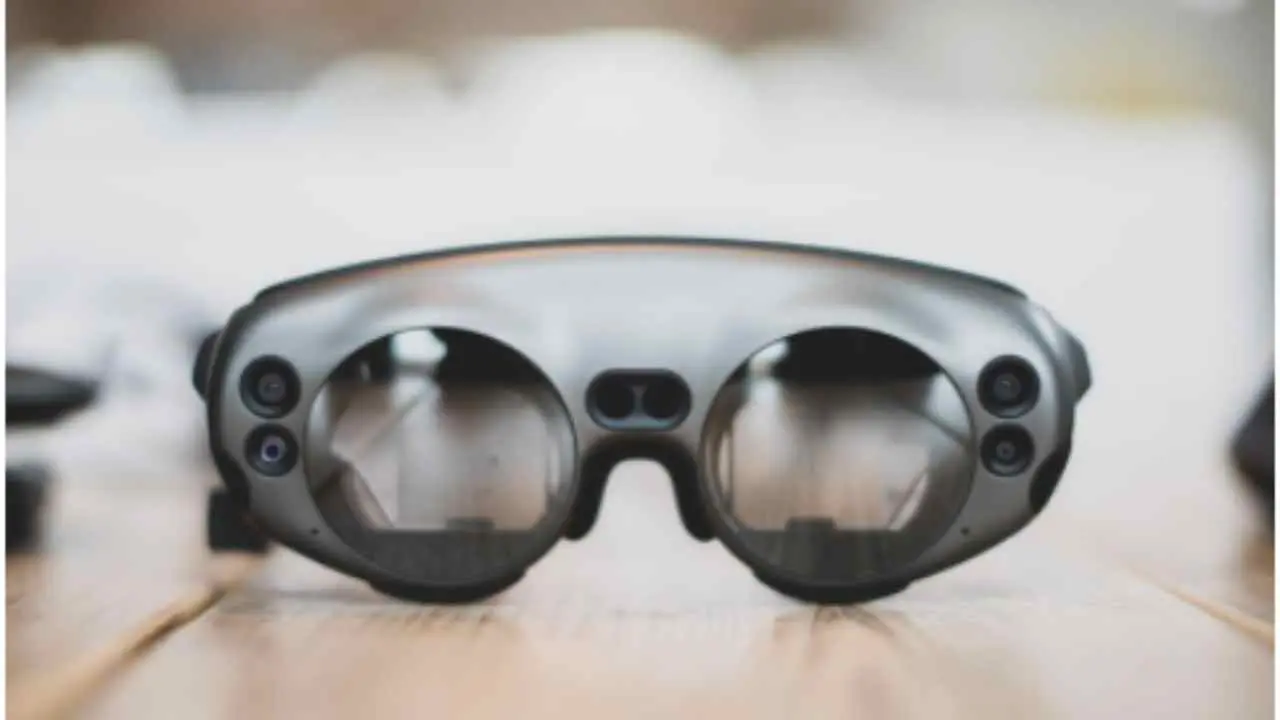Though we’ve been hearing rumors and whispers about AR-infused smart glasses for quite a while now, it’s becoming clear lately that they really are on the way. Some smaller companies have already put out reasonably impressive early versions of this tech, and major companies like Apple and Facebook are preparing to launch smart glasses in the near future.
This technology has all kinds of interesting implications, both for professional use in specific industries and in our everyday lives. But naturally, we want to focus on the potential impact of AR glasses in gaming. And above all else, it strikes us that next-gen AR games that will be played through glasses (rather than smartphone screens) could be incredibly educational.
Already, early forms of AR gaming have shown us the potential this unique medium has to affect us in real life. Pokémon GO essentially introduced us to AR, and though the game is now focusing on new features designed to help people play from their homes (due to the pandemic), the real phenomenon of Pokémon GO was that it got people socializing in the real world! Even as a game that asked people to stare at the world through their phones, it led to gatherings and parties and created entire new networks of friends.
That may not be a strictly educational impact, but it does go to show how AR gaming can go beyond mobile entertainment. And there are a few hypothetical examples we can think of already as to how this real-world crossover could in fact help to teach people interesting skills.
AR Music Gaming
Education has already been mentioned in discussions about how AR can change the music industry. This is undoubtedly an accurate thought with regard to straightforward education. But it will likely show through in gaming as well.
Consider as an example a game like Magic Piano. This is a very popular mobile game on which players use their fingertips to tap on dots and thereby simulate the playing of popular songs. It’s a very engaging simulation and provides a very loose idea of what it might be like to play these songs on a piano or keyboard. But most would agree that Magic Piano is not actually teaching valuable piano skills.
A version of the game in AR would. Through AR glasses, we could see entire pianos laid out digitally before us, and press highlighted keys to play along properly. It could still very much be a game, but it would become one that would help even total beginners to practice real piano skills.
Circuit Design
If circuit design doesn’t strike you as a skill relevant to gaming, you may want to think a little bit more about some of the popular puzzle games you may have played on mobile. Games like Hexcells, Flow Free, and Dots relate not-so-subtly to circuit design; some would even argue that major hits like Monument Valley and Bejeweled have at least vague hints of the practice as well.
Beyond the fact that there are already games like this, it’s also worth noting that circuit design is already a more digital practice than one might assume. While it does ultimately involve the physical construction of circuit boards, it’s something that begins online and through software. Even beginners are able to view PCB design tutorials, view professional designs, and try their luck at setting up printed circuit board schematics in entirely digital form.
It seems not entirely unlikely that at some point AR glasses apps will marry these concepts, resulting in puzzle-like games that teach actual circuit board design. All through digital renderings that appear before us in interactive form, we’ll play our way through design puzzles and challenges, and learn how circuits work (and thus how to design them) in the process.
Space Exploration
This may seem like more of a hobby or interest than an actual field of study. But there’s every chance space exploration is about to become a much hotter topic in mainstream education in the next several years. NASA and SpaceX have launched multiple successful missions in 2020 alone, and the countdown to humans visiting Mars has begun. While we may not see another “space race” the likes of which led astronauts to the moon, interest in space exploration does appear to be ticking up.
This is another area, incidentally, in which AR games could be both utterly fascinating and legitimately educational. It’s easy, in fact, to imagine games that project accurate renderings of our solar system before our eyes, and challenge us to complete missions through gameplay — whether that means helping a crew to the moon, managing activity on the International Space Station or finally reaching Mars.
Entire new generations are going to be fascinated by our exploration beyond Earth’s boundaries in the years and decades to come, and AR video games could well help them to approach this fascination in a way that helps them to gather real perspective and knowledge.
Conclusion
This article could have continued with a number of other hypothetical examples. But hopefully the variety in the topics discussed — music, circuit board design, and space travel — effectively speaks to the vast potential of AR gaming to educate.
We can’t wait to see what the medium produces once smart glasses are available.


